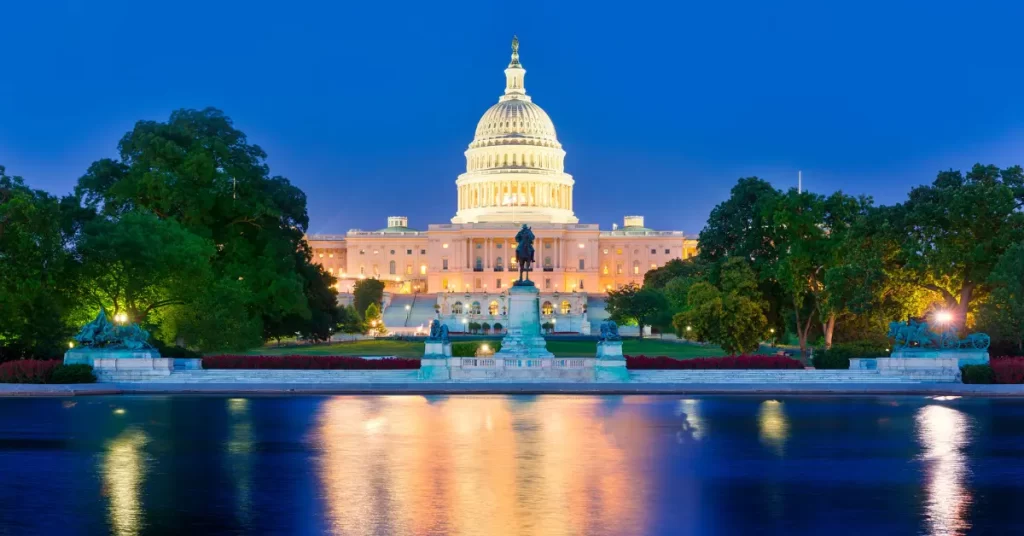Conservatism in America is a political ideology that emphasizes the importance of tradition, limited government, individualism, free markets, and national sovereignty. It is rooted in the belief that individuals should be free to pursue their own goals and aspirations without interference from the government, and that society is best served when individuals are free to make their own choices.
The significance of conservatism in America cannot be overstated. It has played a pivotal role in shaping the country’s political and social landscape, particularly in the post-World War II era. Conservative ideas have influenced policies and legislation across a wide range of issues, from taxation and regulation to social issues like abortion and same-sex marriage.
Conservatism has also played a key role in American identity and culture, particularly in the ways that it has been intertwined with religious and patriotic values. For many Americans, conservatism represents a way of life that is deeply rooted in their personal beliefs and traditions.
Individualism

Individualism is a core value that shapes American conservatism. It emphasizes the importance of individual liberty, self-reliance, and personal responsibility. For conservatives, the government’s role should be limited, allowing individuals to make their own choices and pursue their own goals without undue interference.
The roots of individualism in America can be traced back to the country’s founding principles. The Declaration of Independence, for example, famously declares that “all men are created equal” and are endowed with certain “unalienable Rights” such as “Life, Liberty and the pursuit of Happiness.” This emphasis on individual liberty and rights has been a driving force in American society ever since.
For conservatives, individualism is not just a political value, but a moral and cultural one as well. They believe that individuals should be responsible for their own success or failure, and that society should not reward those who are not willing to work hard or take risks. This belief in personal responsibility is often accompanied by a skepticism of government programs that aim to provide a safety net for those in need.
Individualism has been reflected in many conservative policies over the years. For example, conservatives have pushed for lower taxes and less regulation, arguing that these policies allow individuals to keep more of their own money and make their own decisions about how to invest and spend it. Conservatives have also been critical of government programs such as welfare and healthcare, arguing that they discourage individual initiative and promote dependency.
Limited Government

Limited government is a core value that shapes American conservatism. It emphasizes the idea that government power should be limited in order to protect individual liberty and prevent abuses of power. For conservatives, government should only be involved in those areas where it is absolutely necessary, and should otherwise stay out of people’s lives.
The roots of limited government in America can be traced back to the country’s founding principles. The Constitution, for example, was designed to limit the power of the federal government and protect individual rights. The Bill of Rights, which includes the First Amendment’s protections for freedom of speech, religion, and the press, is another example of the emphasis on limiting government power and protecting individual liberty.
For conservatives, limited government is not just a political value, but a moral and cultural one as well. They believe that government should not interfere in the lives of individuals or businesses, except when it is necessary to protect public safety or promote the common good. This belief in limited government is often accompanied by a skepticism of government programs and regulations that conservatives believe are too intrusive or burdensome.
Limited government has been reflected in many conservative policies over the years. For example, conservatives have pushed for lower taxes, arguing that this reduces the size and power of government. They have also been critical of government regulations, arguing that they stifle economic growth and individual freedom. Conservatives have also been strong supporters of Second Amendment rights, arguing that individuals have the right to bear arms to protect themselves and their families.
Traditionalism

Traditionalism is a core value that shapes American conservatism. It emphasizes the importance of preserving traditional values, institutions, and practices, and is often associated with a belief in the importance of family, religion, and community. For conservatives, the past serves as a guide to the present and the future, and traditions should be respected and honored.
The roots of traditionalism in America can be traced back to the country’s founding principles. The Founding Fathers were deeply influenced by classical and Enlightenment ideas, but they also drew on traditional English common law and republican ideals. In the decades that followed, Americans developed a distinct national identity that was based on a shared commitment to republican values and a belief in the importance of civic virtue and moral character.
For conservatives, traditionalism is not just a political value, but a moral and cultural one as well. They believe that traditional values and institutions provide a stable foundation for society and should be preserved and protected. This belief in traditionalism is often accompanied by a skepticism of social and cultural change, and a belief that rapid change can be disruptive and destabilizing.
Traditionalism has been reflected in many conservative policies over the years. For example, conservatives have been strong supporters of traditional marriage and family values, arguing that these are the building blocks of a stable society. They have also been strong supporters of religious freedom and have argued against government policies that they believe threaten religious institutions and beliefs. Conservatives have also been critical of social and cultural changes, arguing that they can lead to a breakdown of social order and a decline in moral values.
Free Market Capitalism

Free markets are a core value that shapes American conservatism. It emphasizes the idea that the economy should be free from government interference, and that individuals and businesses should be free to compete and make their own economic choices. For conservatives, the market is the most efficient and effective way to allocate resources and promote economic growth.
The roots of free markets in America can be traced back to the country’s founding principles. The Constitution, for example, was designed to limit the power of the federal government and protect individual rights, including property rights. In the decades that followed, Americans developed a strong entrepreneurial spirit and a belief in the importance of hard work and self-reliance.
For conservatives, free markets are not just a political value, but a moral and cultural one as well. They believe that individuals should be free to pursue their own economic self-interest, and that this will ultimately benefit society as a whole. This belief in free markets is often accompanied by a skepticism of government intervention in the economy, and a belief that government regulation can stifle innovation and economic growth.
Free markets have been reflected in many conservative policies over the years. For example, conservatives have pushed for lower taxes and less government spending, arguing that this will stimulate economic growth and job creation. They have also been critical of government regulation, arguing that it can make it more difficult for businesses to operate and compete. Conservatives have also been strong supporters of free trade, arguing that it promotes economic growth and benefits consumers.
Nationalism

Nationalism is a core value that shapes American conservatism. It emphasizes the idea that the nation-state is the primary unit of political organization, and that the nation’s interests should take precedence over individual or group interests. For conservatives, nationalism is a way of preserving the nation’s cultural identity and ensuring its security and prosperity.
The roots of nationalism in America can be traced back to the country’s founding principles. The Founding Fathers were deeply committed to the idea of a nation-state, and saw America as a unique and exceptional nation with its own distinct identity and values. In the decades that followed, Americans developed a strong sense of national pride and patriotism, and a belief in the importance of defending the nation’s interests.
For conservatives, nationalism is not just a political value, but a moral and cultural one as well. They believe that the nation is the foundation of social order and that it provides a sense of identity and belonging for its citizens. This belief in nationalism is often accompanied by a skepticism of internationalism, and a belief that the nation should prioritize its own interests over those of other nations.
Nationalism has been reflected in many conservative policies over the years. For example, conservatives have been strong supporters of strong national defense and military spending, arguing that this is necessary to protect the nation’s interests and ensure its security. They have also been critical of international institutions and agreements that they believe threaten the nation’s sovereignty and autonomy. Conservatives have also been strong supporters of immigration policies that prioritize the interests of American citizens and protect the nation’s borders.
Why American Conservatism is the Best

American conservatism is a complex and multifaceted political philosophy that encompasses a range of values and beliefs. These include individualism, limited government, traditionalism, free markets, and nationalism, among others. Each of these values reflects a particular view of the role of government, society, and the economy, and each has played a significant role in shaping conservative policies over the years.
Despite their differences, these values are united by a common belief in the importance of individual liberty, personal responsibility, and the preservation of traditional institutions and values. Conservatives believe that these values are essential for maintaining a free and prosperous society, and that they must be protected and defended against threats from both within and outside the country.

